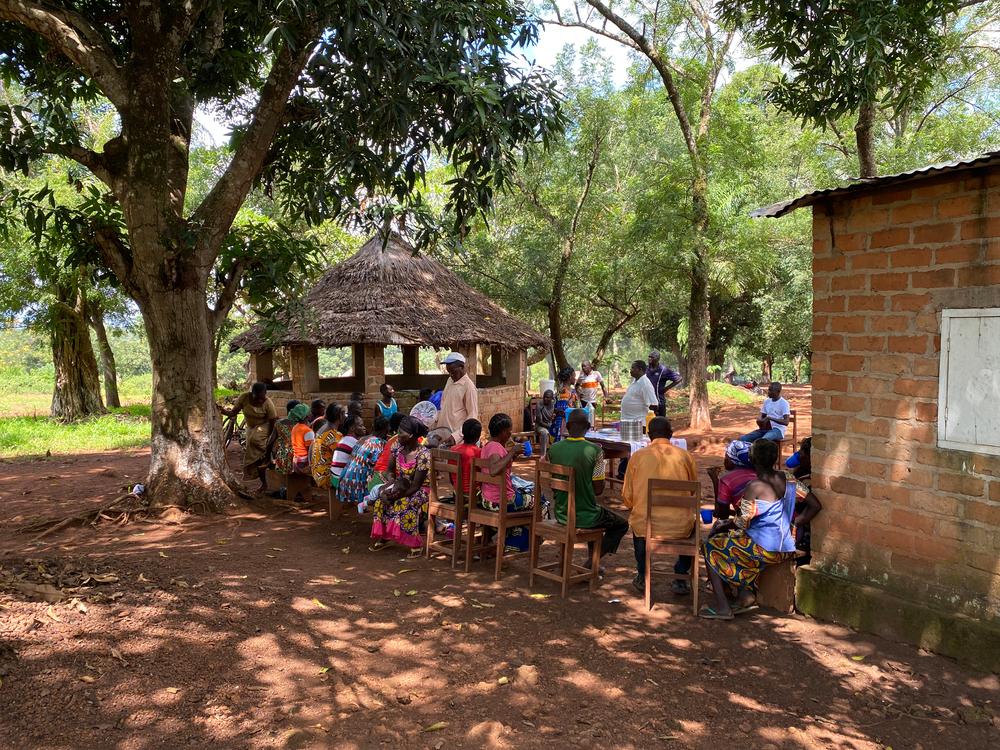After seven years of intervention in the health district of Haut Mbomou, Central African Republic, MSF is scaling back its HIV-related activities and transferring the successful differentiated care model to the Ministry of Health.
HIV prevalence in the Haut Mbomou prefecture is estimated at 11.9%. But this area, located in the south-east of the country and bordering on the Democratic Republic of Congo, is very difficult to access due to the presence of armed groups, the poor state of the roads, and the rarity of air flights. The population's access to healthcare is therefore severely limited.
Taking contextual factors into account
This is why, in 2016, MSF decided to implement a differentiated model of care (recommended by the WHO), in the town of Zémio, where the largest number of patients are located, with over 2,000 patients on antiretroviral treatment, including 1,385 active patients by the end of 2022.
This model involves the formation of Community Antiretroviral Therapy Groups (CAGs) made up of and by stable HIV-positive patients on treatment and living in the same geographical area. Members support each other by taking it in turns to collect drugs every six months from the nearest health center, and then distribute them in the community to other group members. This reduces the number of individual visits and transportation costs, while lessening the workload on the health system.
"Before the arrival of this MSF initiative, we were really suffering" says Louis, leader of a former community group in Zémio. "The situation made it very difficult to access treatment. The environment was dangerous and the roads weren't good, so it was complicated for us to get to the health centers. When the solution of community groups was proposed to us, we didn't hesitate. The one I led in Zémio was made up of 20 people, and that helped us all. At that point, we weren't even thinking about stigmatization, we just wanted to save our lives. A few years ago, I had to flee the region for security reasons and go to Bangui. Despite this, we have maintained the CAG system to this day. The members continue to help each other, which helps us to remain active in our treatments. It's thanks to this MSF initiative that I'm still alive today."
Decentralized and adapted treatment
Through this mutual support system, patients participate more actively in their treatment and become key players in HIV prevention in their community. This mutual support reinforces acceptance of treatment in an environment where stigmatization of HIV-positive people remains a harsh reality.
A total of 82 CAGs (with an average of 15 members per CAG), 67 of which are active, have been set up in the area. The total number of patients in these groups is 1208, with 963 active members. Most of them live in Zemio, with the remainder in various axes and on the DR Congo side of the border.
A key transition phase
Over the years, this system has clearly proved its worth, which is why it has been deployed on a larger scale in Boguila, Bossangoa and Bambari. The aim is to integrate this differentiated model into the national system to guarantee access to care for patients in need, and to support the Ministry in implementing this model autonomously.
After the closure of the MSF base in Zemio, a local team continued to be supported from Bangui in the care of HIV/TB patients through the differentiated models (CAG and PFT). In addition to staff training, the supply of certain medical products and the organization of transport for CAG representatives, MSF supported the training of patient groups, raised awareness of the models, donated a machine for viral load tests and financed the rehabilitation of the treatment distribution service and the upgrading of the laboratory.
The final handover to the Ministry of Health in Zemio took place at the end of March 2023. The latter must now ensure continuity of care thanks to the Global Fund's HIV grant, including for groups of patients in MSF projects in Bambari, Boguila and Bossangoa. MSF is also looking into the possibility of providing technical support to Bangui's Centre National de Traitement Ambulatoire (CNTA) in its bid to implement the CAG model for the management of its cohort of almost 4,000 people living with HIV in the capital.
